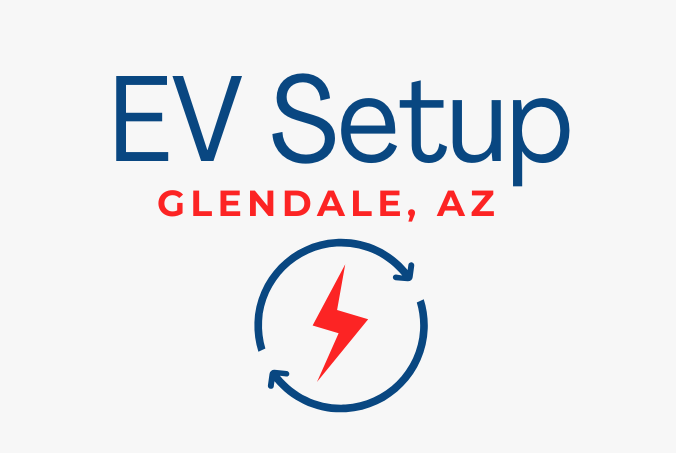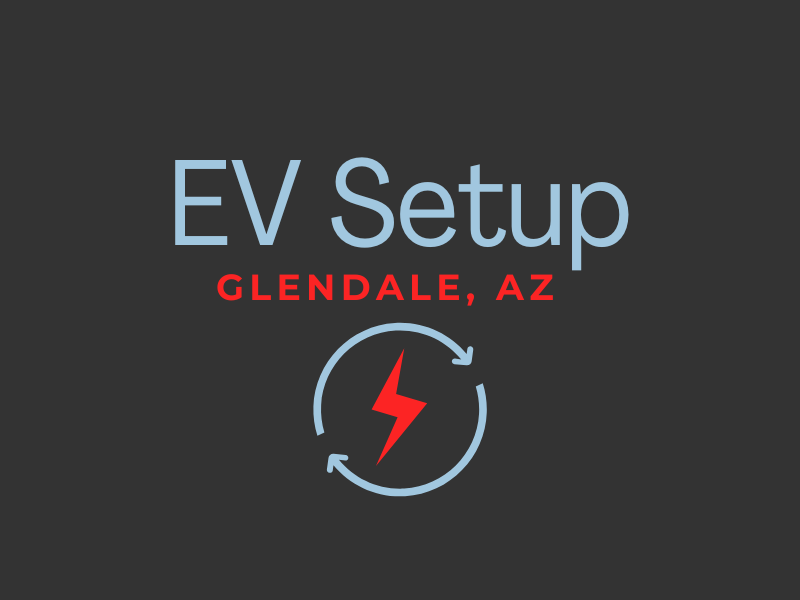Benefits of solar-powered EV charger installation in Glendale, AZ: Sustainable Power for Electric Vehicles
As electric vehicles gain popularity in Glendale, AZ, solar-powered EV charger installations are becoming an attractive option for environmentally conscious drivers. EV Setup Glendale offers a solution that combines the benefits of clean energy with convenient home charging. Solar-powered EV chargers allow homeowners to reduce their carbon footprint while potentially saving money on electricity costs.
By harnessing the abundant Arizona sunshine, these charging systems provide a sustainable way to power electric vehicles. Glendale residents can take advantage of the region's high solar potential to generate clean electricity for their EVs. This approach not only supports the transition to greener transportation but also promotes energy independence.
EV Setup Glendale's solar-powered charger installations offer Glendale homeowners the flexibility to charge their vehicles day or night. The systems can be integrated with home solar arrays or installed as standalone units, providing a reliable and efficient charging solution tailored to each customer's needs. With professional installation and ongoing support, EV owners can enjoy the convenience of home charging while contributing to a cleaner environment.
Why Choose Solar-Powered EV Chargers
Solar-powered EV chargers offer numerous benefits for Glendale residents. They reduce environmental impact, provide significant cost savings, and allow homeowners to take advantage of various incentives.
Reducing Carbon Footprint and Supporting Clean Energy
Solar-powered EV chargers significantly decrease reliance on fossil fuels. By harnessing renewable energy from the sun, these chargers produce clean electricity to power electric vehicles. This reduces greenhouse gas emissions and helps combat climate change.
Solar EV charging systems contribute to a more sustainable energy grid. They reduce strain on local power infrastructure during peak hours. This is especially beneficial in Glendale's hot climate, where air conditioning use can stress the grid.
Installing solar panels for EV charging also increases energy independence. Homeowners can generate their own power, reducing vulnerability to utility price fluctuations and outages.
Maximizing Cost Savings
Solar-powered EV chargers can lead to substantial long-term savings. Initial installation costs are offset by reduced electricity bills over time. As utility rates rise, savings increase.
EV owners can charge their vehicles for free using solar energy. This eliminates fuel costs associated with traditional gas-powered cars.
Solar panels often produce excess energy. Many utility companies offer net metering programs, crediting homeowners for surplus power sent to the grid. This further reduces electricity costs.
Pairing solar with EV charging protects against future energy price hikes. It provides a stable, predictable cost for powering both home and vehicle.
Leveraging Federal and State Incentives
Numerous incentives make solar-powered EV chargers more affordable. The federal solar investment tax credit offers a 30% deduction on installation costs through 2032.
Arizona provides additional benefits:
- State solar tax credit: 25% of system cost (up to $1,000)
- Solar equipment sales tax exemption
- Property tax exemption for added home value from solar
Some utilities offer rebates for solar installations. Check with local providers for current programs.
EV charger-specific incentives may also apply. These can include rebates or tax credits for installation costs.
The Convenience and Advancements in EV Charging Technology
EV charging technology has evolved rapidly, offering improved convenience and efficiency for electric vehicle owners. Solar-powered charging stations now provide cost-effective and environmentally friendly options for powering EVs.
Understanding Different Types of EV Chargers
EV chargers come in three main types: Level 1, Level 2, and DC Fast Chargers.
Level 1 chargers use standard 120V wall outlets, providing slow charging suitable for overnight use.
Level 2 chargers operate on 240V power, offering faster charging speeds ideal for home and workplace installations.
DC Fast Chargers deliver high-power DC current directly to the vehicle's battery, enabling rapid charging in public locations. These chargers can replenish up to 80% of an EV's battery in 30-60 minutes, making long-distance travel more feasible.
Public charging stations often feature a mix of Level 2 and DC Fast Chargers to accommodate various charging needs and vehicle types.
Integration with Home Solar Systems
Integrating EV charging with home solar systems offers numerous benefits for EV owners. Solar panels generate clean electricity, which can be used to charge EVs directly or stored in batteries for later use.
A typical setup includes solar panels, an inverter, and optional battery storage. The solar inverter converts DC power from the panels to AC power for home use and EV charging. Battery storage systems allow excess solar energy to be stored for nighttime or cloudy day charging.
This integration can significantly reduce electricity costs and carbon footprint. Some systems even offer Vehicle-to-Home (V2H) capabilities, allowing the EV's battery to power the home during outages or high electricity demand periods.
Practical Benefits for EV Owners
Solar-powered EV charging provides numerous practical benefits for electric vehicle owners. Charging at home offers unparalleled convenience, eliminating the need to visit public charging stations regularly.
Cost savings are substantial, as solar electricity is often cheaper than grid power. In Glendale, AZ, where sunlight is abundant, solar charging can lead to significant long-term savings on fuel costs.
EV owners with solar systems gain energy independence, reducing reliance on the grid and volatile electricity prices. This setup also future-proofs homes against rising energy costs.
The combination of EVs and solar power dramatically reduces carbon emissions, allowing environmentally conscious drivers to minimize their carbon footprint while enjoying the benefits of electric transportation.

